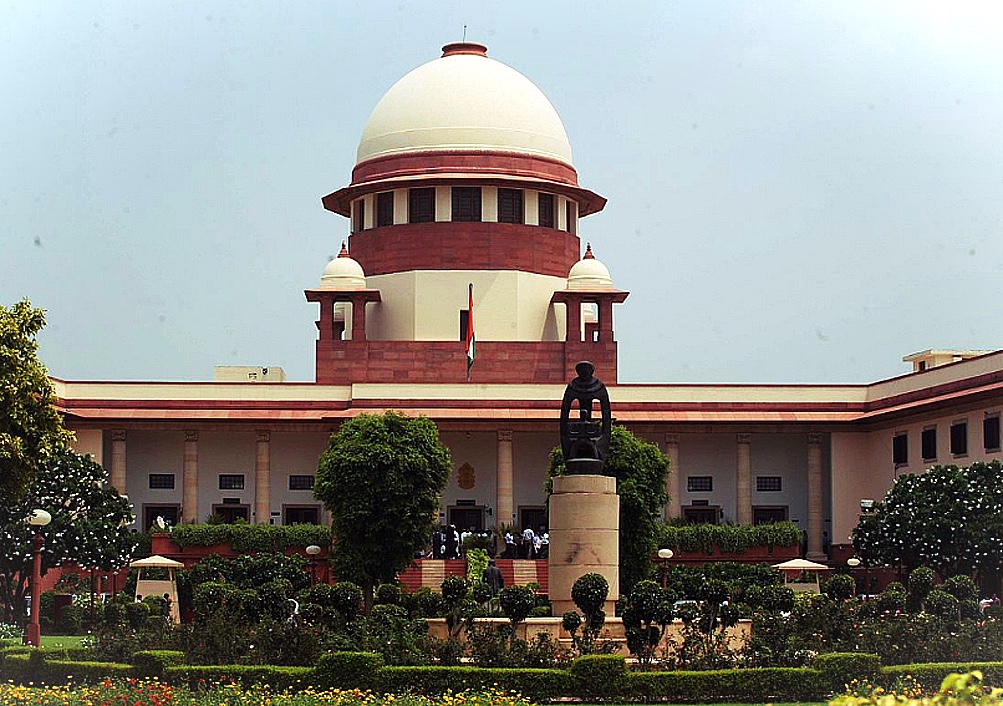SC orders removal of slums around Delhi rail tracks, stops courts from staying eviction

New Delhi, September 3: The Supreme Court has ordered the removal of close to 48,000 slum dwellings situated along railway tracks in Delhi within three months, and to ensure compliance of its order, has stopped any court from passing an order of stay against such removal.
In the event an order is passed, the same shall have no effect on the eviction proceedings, the court ruled, Hindustan Times reported.
The court, which was hearing an application filed in the MC Mehta case relating to Delhi pollution matters, took this step on Monday, after the Indian Railways informed the court that despite a Special Task Force constituted to remove encroachments, political interference was coming in the way of getting the jhuggis removed. An order for removal of all encroachments passed by the National Green Tribunal (NGT) on October 1, 2018 had led to the formation of the task force.
The verdict was uploaded on the Supreme Court website on Tuesday night. Justice Mishra demitted office Wednesday.
The court has passed the extraordinary order in exercise of its power under Article 142, which states, “The Supreme Court in the exercise of its jurisdiction may pass such decree or make such order as is necessary for doing complete justice in any cause or matter pending before it.” In the past, the apex court has exercised this power to pass similar orders in the 2G spectrum scam case by restraining courts across the country from taking up bail pleas of those accused in the scam.
Going through an affidavit filed by the Railways, the apex bench of Justices Arun Mishra, BR Gavai and Krishna Murari said: “There is predominant presence of jhuggies in Delhi along with 140km route length of railway track in the region of NCT of Delhi… Out of this, about 70km route length of track is affected by large jhuggie jhopri clusters existing in close vicinity of the tracks.”
These clusters aggregated to about 48,000 jhuggies, most of which were present within the security zone of the Railways,according to the affidavit filed by Ashwani Kumar Yadav, additional divisional railway manager at DRM Office, Delhi Division, Northern Railways.
There are no official estimate as to how many people live in such slums. NGOs say that the land owning agency, the railways in this case, will have to do a survey to ascertain the number of dwellers.
“The encroachments which are there in the safety zones should be removed within a period of three months and no interference, political or otherwise, should be there, and no court shall grant any stay with respect to removal of the encroachments in the area in question. In case any interim order is granted with respect to encroachments which have been made along with railway tracks, that shall not be effective.” the order added.
Shivani Chaudhry, executive director of NGO Housing and Land Rights Network, said: “Forcibly evicting people is never a solution. It results in greater impoverishment, homelessness, and marginalisation. This is also not the time to carry out evictions, given the serious public health emergency in the country on account of the pandemic.”
“Forcibly evicting 48,000 households will result in a grave human rights emergency that could threaten the lives of affected people. The government should ensure that consultations are held with affected people, and plans for providing adequate housing are developed with their prior informed consent,” she added.
A similar direction was passed by the court with regard to removal of plastic bags and garbage from the tracks. The court directed the Railways, the Delhi government, Delhi Urban Shelter Improvement Board (DUSIB) and concerned municipal corporations to meet next week and draw an action plan for cleaning tracks. The municipal corporations were asked to tell their contractors to lift the garbage from the designated places where the Railways dumps waste. The court apportioned the cost involved for the long-term cleaning plan to be shared by the Centre and Delhi government in a 70:30 ratio.
The apex court had involved DUSIB — the agency that provides temporary/night shelters for the homeless in Delhi — for preparing an action plan to remove garbage and encroachment, and enable rehabilitation of the people evicted from the jhuggis.
Sign up for our weekly newsletter to stay up to date on our product, events featured blog, special offer and all of the exciting things that take place here at Legitquest.




Add a Comment